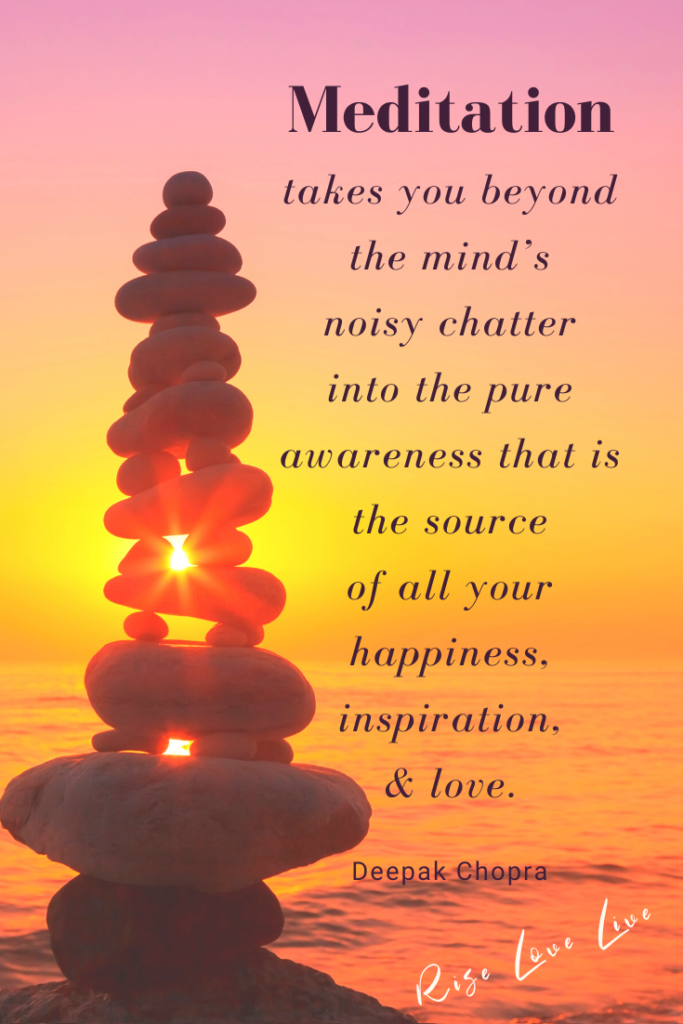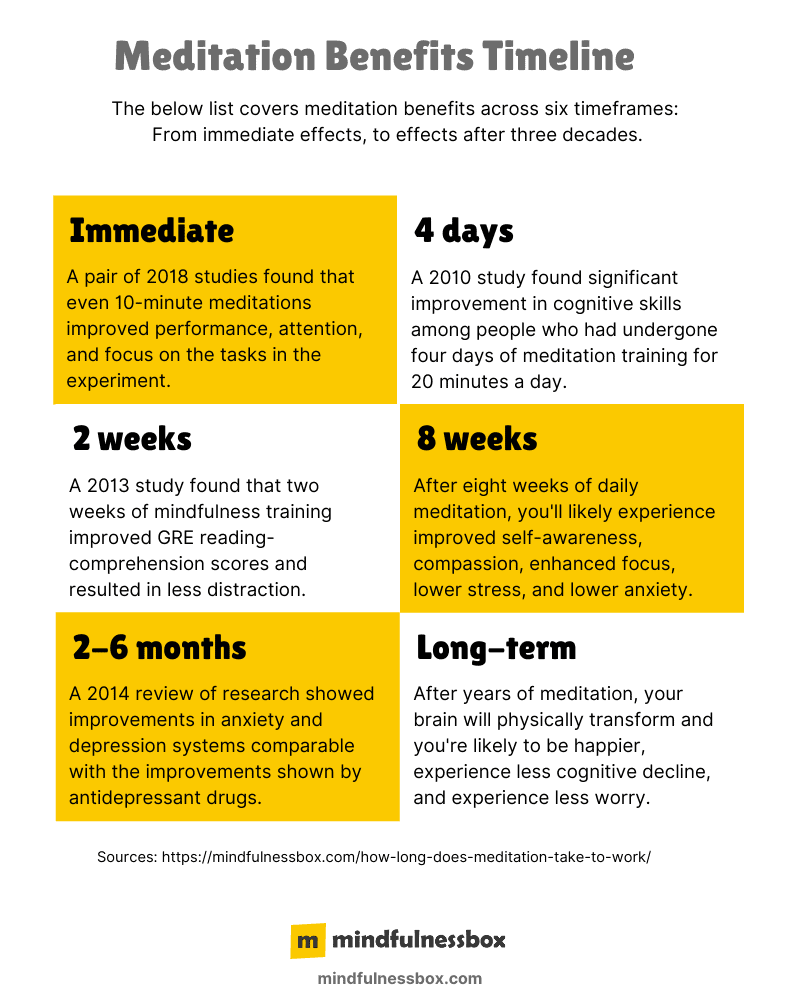In today's fast-paced world, finding inner peace can feel like an elusive dream. Deep meditation offers a powerful pathway to tranquility and self-discovery. This article explores the profound benefits of deep meditative practices, guiding you through techniques to unlock your inner peace. We'll delve into the science behind meditation's effectiveness, exploring how it impacts stress reduction, emotional regulation, and overall well-being. Discover how to cultivate a consistent meditation practice and harness its transformative power to achieve a calmer, more fulfilling life.
Deep Meditation: A Journey to Inner Tranquility
Deep Meditation: A Journey to Inner Tranquility speaks to the transformative power of deep meditative practices in achieving a state of profound inner peace. It suggests a process, a journey, rather than a single destination, highlighting the ongoing nature of cultivating inner peace. The title implies that deep meditation is the key to unlocking this peace, implying a hidden potential within each individual waiting to be discovered and nurtured through dedicated practice.
Understanding the Mechanics of Deep Meditation
Deep meditation isn't simply about clearing your mind; it's about actively engaging with your thoughts and emotions without judgment. It involves various techniques, such as focusing on your breath, using mantras, or practicing mindfulness, to cultivate a state of deep relaxation and awareness. The mechanics involve training your mind to observe your thoughts and sensations from a detached perspective, reducing their power to disturb your inner peace. This process cultivates a greater self-awareness and allows you to navigate life's challenges with increased clarity and composure.
Benefits of Deep Meditation for Mental Well-being
Regular deep meditation practice offers significant benefits for mental well-being. Studies show a reduction in symptoms of anxiety and depression, improved focus and concentration, increased emotional regulation, and a greater sense of self-compassion. By calming the nervous system and reducing stress hormones, deep meditation creates space for inner peace to flourish. This leads to a more balanced emotional state, enabling individuals to respond to life's stressors with greater resilience and a sense of calm. The cumulative effect of these benefits improves overall mental health and enhances the quality of life.
The Physical Effects of Deep Meditation
Beyond mental well-being, deep meditation also positively impacts physical health. It can lower blood pressure, improve sleep quality, boost the immune system, and alleviate chronic pain. The practice helps to regulate the body's physiological responses to stress, reducing the negative impact of the "fight-or-flight" response. Through regular practice, individuals may experience reduced physical tension, improved cardiovascular health, and a greater sense of overall physical well-being. These physical benefits complement the mental and emotional advantages, creating a holistic approach to health and wellness.
Different Techniques for Achieving Deep Meditation
Many different techniques can help you achieve deep meditation. Some popular methods include mindfulness meditation, where you focus on the present moment, transcendental meditation (TM), which uses a personalized mantra, and guided meditation, where a voice leads you through the process. Choosing the right technique depends on individual preferences and learning styles. Experimentation is encouraged to find the method that resonates most effectively, enabling you to experience the profound benefits of deep meditative practice. It's important to remember that consistency and patience are key to success, regardless of the chosen technique.
Incorporating Deep Meditation into Daily Life
Integrating deep meditation into your daily routine doesn't require hours of dedicated practice. Even short, 10-15 minute sessions can yield significant benefits. Starting with shorter sessions and gradually increasing the duration allows for a sustainable practice. Finding a quiet space, free from distractions, is crucial for creating a conducive environment. Consistency is vital; treating meditation like any other important appointment helps to build a lasting habit. Creating a mindful routine, incorporating meditative moments into daily activities, enhances the overall effectiveness and promotes a lasting sense of peace and tranquility.
| Technique | Focus | Benefits |
|---|---|---|
| Mindfulness Meditation | Present moment awareness | Reduced stress, improved focus |
| Transcendental Meditation (TM) | Personalized mantra | Deep relaxation, reduced anxiety |
| Guided Meditation | Following a guided voice | Improved sleep, enhanced self-awareness |
How do you unlock inner peace?

Unlocking Inner Peace
Unlocking inner peace is a journey, not a destination. It's a process of self-discovery and continuous growth that involves understanding and working with your mind and body. There's no single magic bullet, but rather a combination of practices and perspectives that can help cultivate a sense of calm and contentment within. It requires consistent effort and self-compassion, acknowledging that setbacks are part of the process. The key is to prioritize practices that support your mental, emotional, and physical well-being.
Cultivating Mindfulness
Mindfulness involves paying attention to the present moment without judgment. It's about observing your thoughts, feelings, and sensations without getting carried away by them. This practice helps you become more aware of your internal world and reduces the power of negative thoughts and emotions. By anchoring yourself in the present, you create space between yourself and your reactions, fostering a sense of calm and acceptance.
- Practice meditation: Even a few minutes a day can make a difference.
- Engage in mindful activities: Pay close attention to what you're doing, whether it's eating, walking, or working.
- Observe your thoughts and emotions without judgment: Simply notice them and let them pass without reacting.
Letting Go of the Past
Holding onto past hurts, regrets, and resentments can significantly impede inner peace. Forgiveness, both of yourself and others, is crucial. It doesn't mean condoning harmful actions, but rather releasing the grip these negative experiences have on your emotional well-being. This process can be challenging and may require professional guidance, but the reward is a lighter heart and a clearer path towards inner peace.
- Practice self-compassion: Acknowledge your past mistakes without self-criticism.
- Forgive others: This doesn't mean forgetting, but releasing the anger and resentment.
- Journaling: Writing about your feelings can help you process and release them.
Managing Stress and Anxiety
Stress and anxiety are significant obstacles to inner peace. Developing effective coping mechanisms is essential. This might involve incorporating relaxation techniques, setting healthy boundaries, and prioritizing self-care. Recognizing your triggers and developing strategies to manage them is a critical step. It's important to remember that stress is a normal part of life, but chronic stress can be detrimental to your well-being.
- Engage in regular exercise: Physical activity helps reduce stress hormones.
- Practice relaxation techniques: Deep breathing, yoga, and progressive muscle relaxation can be helpful.
- Prioritize self-care: Make time for activities that you enjoy and that nourish your soul.
Nurturing Positive Relationships
Meaningful connections with others are vital for cultivating inner peace. Surrounding yourself with supportive and loving individuals can significantly impact your emotional well-being. Strong social connections provide a sense of belonging and purpose, which are essential for inner peace. Conversely, toxic relationships can drain your energy and hinder your progress towards inner peace.
- Spend time with loved ones: Nurture your relationships with family and friends.
- Set healthy boundaries: Protect yourself from negative influences.
- Cultivate compassion and empathy: These qualities strengthen relationships and foster inner peace.
Living with Purpose
Finding meaning and purpose in life is a powerful catalyst for inner peace. This doesn't necessarily mean having a grand life plan, but rather discovering activities and pursuits that resonate with your values and bring you joy. When you feel a sense of purpose, you feel more connected to something larger than yourself, fostering a sense of fulfillment and contentment.
- Identify your values: What's truly important to you?
- Set meaningful goals: What do you want to achieve in your life?
- Contribute to something larger than yourself: Volunteer, mentor, or engage in activities that make a difference.
How do you meditate inner peace?

Meditating for Inner Peace
Achieving inner peace through meditation is a journey, not a destination. It involves cultivating a calm and peaceful state of mind, reducing stress and anxiety, and fostering a sense of well-being. It's not about emptying your mind entirely, but rather about training your mind to observe your thoughts and feelings without judgment. This takes consistent practice and patience. Different techniques can be effective, and finding the right one for you may require experimentation. The key is to establish a regular practice and gradually deepen your understanding of your inner self.
Finding a Quiet Space and Comfortable Posture
Creating the right environment is crucial for effective meditation. Find a quiet space where you won't be disturbed. This could be a dedicated meditation room, a quiet corner of your home, or even outdoors in nature. Choose a comfortable posture that allows you to sit or lie down without discomfort for the duration of your meditation. Maintaining a relaxed and upright posture is generally recommended, as it helps to keep your mind alert and focused. Avoid positions that might encourage you to fall asleep.
- Find a quiet space free from distractions.
- Choose a comfortable sitting or lying position. Consider using cushions or supports for back support.
- Ensure the room temperature is comfortable and avoid overly bright or dim lighting.
Focusing Your Attention
Once you're settled, you need to focus your attention. Common techniques include focusing on your breath, a mantra (a repeated word or phrase), or a visual object like a candle flame. The goal is to gently bring your attention back to your chosen focus whenever your mind wanders, which it inevitably will. Don't judge yourself for this; it's a natural part of the process. The more you practice, the easier it will become to maintain focus.
- Focus on your breath, noticing the sensation of the air entering and leaving your body.
- Repeat a mantra silently to yourself, such as "peace," "calm," or "love."
- Use a visual focal point, such as a candle flame or a natural scene, to help you maintain focus.
Managing Distracting Thoughts
During meditation, thoughts will inevitably arise. Instead of fighting them, gently acknowledge them without judgment and redirect your attention back to your chosen focus. Think of your mind as a flowing river; thoughts are like ripples on the surface. Observe the ripples, but don't get swept away by them. Over time, you'll become more skilled at managing these distractions and finding a deeper sense of calm.
- Acknowledge thoughts without judgment.
- Gently redirect your attention back to your chosen focus.
- Practice patience and self-compassion.
Developing a Regular Practice
Consistency is key to developing a strong meditation practice and reaping its benefits. Start with short sessions, perhaps 5-10 minutes a day, and gradually increase the duration as you become more comfortable. Consistency is more important than duration. Even short, regular sessions can make a significant difference in reducing stress and cultivating inner peace. Aim for a time when you're least likely to be interrupted.
- Start with short sessions (5-10 minutes) and gradually increase the duration.
- Meditate at the same time each day to establish a routine.
- Be patient and persistent; the benefits of meditation often become apparent gradually.
Exploring Different Meditation Techniques
There are various meditation techniques, each with its own approach and benefits. Exploring different styles can help you discover what resonates best with you. Some popular techniques include mindfulness meditation, transcendental meditation, loving-kindness meditation, and guided meditation. Experiment with different techniques to find what works best for you. You might even combine elements from different styles to create your unique practice.
- Explore mindfulness meditation, which focuses on present moment awareness.
- Try transcendental meditation, which involves the repetition of a mantra.
- Practice loving-kindness meditation, which focuses on cultivating feelings of compassion and love.
- Use guided meditation apps or recordings to help you get started.
What happens if you meditation 10 minutes a day?

What Happens if You Meditate 10 Minutes a Day?
Meditating for 10 minutes a day, even consistently, won't magically transform your life overnight. However, the cumulative effects over time can be significant and beneficial for your mental and physical well-being. The key is consistency. Ten minutes of focused practice daily is far more effective than infrequent, longer sessions. The benefits accrue gradually as your mind becomes more accustomed to the practice and you develop stronger mental discipline. You'll likely notice some changes sooner than others, depending on your individual starting point and the type of meditation you practice.
Reduced Stress and Anxiety
Regular meditation, even in short bursts, can significantly impact your stress response. The practice trains your mind to become less reactive to external stimuli, helping you to manage stressful situations more effectively. Over time, you may find yourself feeling calmer and more centered, even amidst chaos. This reduction in stress can also positively influence other aspects of your health.
- Improved emotional regulation: You'll become better at identifying and managing difficult emotions.
- Lower cortisol levels: Meditation helps reduce the levels of the stress hormone cortisol in your body.
- Increased resilience: You'll develop a greater capacity to bounce back from stressful events.
Improved Focus and Concentration
In our constantly distracted world, the ability to focus is a precious commodity. Daily meditation helps train your attention span. By consistently bringing your mind back to the present moment during meditation, you are strengthening your focus muscles. This improved focus will translate into improved concentration in other areas of your life, such as work, studies, or even simple tasks.
- Enhanced cognitive function: Improved attention and concentration can boost overall cognitive performance.
- Increased productivity: Better focus leads to greater efficiency and productivity in daily tasks.
- Reduced mind-wandering: You'll experience less mental distraction during the day.
Better Sleep Quality
Many people struggle with sleep problems. Meditation can promote relaxation and reduce racing thoughts, which often contribute to insomnia. The calming effect of meditation makes it easier to wind down before bed, leading to improved sleep quality and duration. It's important to note that meditation shouldn't replace other sleep hygiene practices, but it can be a valuable supplement.
- Reduced insomnia: Meditation can help you fall asleep faster and stay asleep longer.
- Improved sleep cycle: You might experience deeper, more restful sleep.
- Decreased daytime sleepiness: Better sleep quality often leads to increased alertness during the day.
Increased Self-Awareness
Meditation is a powerful tool for self-discovery. By observing your thoughts and feelings without judgment, you gain valuable insights into your inner world. This increased self-awareness can lead to a better understanding of your emotions, behaviors, and motivations. This understanding can empower you to make positive changes in your life.
- Better emotional intelligence: You'll become more attuned to your own emotions and those of others.
- Improved self-compassion: You'll develop a kinder and more understanding relationship with yourself.
- Greater personal growth: Self-awareness is a foundation for personal growth and positive change.
Enhanced Emotional Regulation
Daily meditation practice equips you with tools to manage your emotional responses more effectively. Instead of reacting impulsively to emotions, you learn to observe them with detachment and respond thoughtfully. This can be particularly helpful in navigating challenging interpersonal relationships and stressful situations.
- Reduced reactivity: You'll respond to upsetting situations with greater calm and composure.
- Improved empathy: You'll be better able to understand and connect with the emotions of others.
- Increased emotional resilience: You'll be better equipped to cope with difficult emotions and challenges.
What does meditation unlock?

What Meditation Unlocks
Meditation, when practiced consistently and correctly, unlocks a wide range of benefits impacting various aspects of our being. It's not a magic bullet, but rather a powerful tool that cultivates inner peace and enhances our capacity for well-being. The specific benefits experienced will vary from person to person and depend on the type of meditation practiced and the individual's dedication. However, some common unlocks include a deeper understanding of the self, increased self-awareness, improved emotional regulation, stress reduction, and enhanced focus. The process essentially allows us to access and utilize our inner resources more effectively.
Enhanced Self-Awareness
Regular meditation cultivates increased self-awareness, enabling you to observe your thoughts, emotions, and bodily sensations without judgment. This non-reactive observation allows for a deeper understanding of your inner landscape, revealing patterns of thinking and feeling that may have previously been unconscious. This heightened awareness allows for more conscious choices and responses in daily life.
- Improved emotional intelligence: Understanding your emotions better allows you to manage them more effectively.
- Increased self-compassion: Observing your inner world with kindness reduces self-criticism and fosters self-acceptance.
- Greater clarity in decision-making: A clearer understanding of your values and priorities leads to more informed choices.
Reduced Stress and Anxiety
Meditation techniques, particularly mindfulness meditation, help to calm the nervous system. By focusing on the present moment, you disengage from the anxieties of the future and regrets of the past, reducing overall stress and anxiety levels. This calming effect can have profound impacts on both mental and physical health.
- Lower cortisol levels: Meditation has been shown to lower cortisol, the stress hormone.
- Improved sleep quality: A calmer mind leads to improved sleep patterns.
- Increased resilience: Regular meditation helps build resilience to stressors.
Improved Focus and Concentration
The act of focusing your attention during meditation strengthens your ability to concentrate. This enhanced focus translates into improved performance in various aspects of daily life, from work and studies to relationships and creative endeavors. It strengthens your mental "muscles" of concentration.
- Better memory and cognitive function: Improved focus can lead to better memory retention and cognitive processing.
- Increased productivity: Greater concentration allows you to accomplish more in less time.
- Enhanced creativity: A calm and focused mind is more conducive to creative thinking.
Greater Emotional Regulation
Meditation helps you develop skill in managing your emotions. By observing your emotions without judgment, you learn to respond to them more skillfully rather than reacting impulsively. This leads to more balanced and healthier emotional responses in challenging situations.
- Reduced reactivity: Meditation allows you to pause and choose your response rather than reacting automatically.
- Increased empathy: Understanding your own emotions better allows you to understand and empathize with others more readily.
- Improved relationship quality: Better emotional regulation improves communication and interaction with others.
Access to Inner Peace and Well-being
Ultimately, meditation unlocks a sense of inner peace and well-being. It allows you to connect with a deeper sense of calm and contentment that transcends the ups and downs of daily life. This inner peace provides a stable foundation for navigating challenges and appreciating life's joys.
- Increased feelings of contentment: Regular practice fosters a sense of inner peace and contentment.
- Improved sense of purpose: Meditation can help you connect with your values and sense of purpose.
- Greater overall life satisfaction: The cumulative effects of meditation lead to a more fulfilling and joyful life.
Frequently Asked Questions
What is Deep Meditation: Unlock Your Inner Peace?
Deep Meditation: Unlock Your Inner Peace is a guided meditation program designed to help individuals achieve a deeper state of relaxation and inner peace. It utilizes a variety of techniques, including mindfulness, visualization, and affirmations, to help users connect with their inner selves and reduce stress and anxiety. The program offers a structured approach to meditation, making it accessible to both beginners and experienced practitioners.
How long does it take to see results from Deep Meditation?
The timeframe for experiencing the benefits of Deep Meditation varies from person to person. Some individuals report feeling calmer and more focused after just a few sessions, while others may need to practice regularly for several weeks or months to notice significant changes. Consistency is key; the more you dedicate yourself to the practice, the more likely you are to experience lasting improvements in your mental and emotional well-being. Listen to your body and be patient with yourself as you embark on this journey of self-discovery.
What are the prerequisites for using Deep Meditation?
There are no special prerequisites to use Deep Meditation: Unlock Your Inner Peace. The program is designed to be accessible to individuals of all backgrounds and experience levels with meditation. While prior meditation experience can be beneficial, it is not necessary. All you need is a quiet space, a comfortable position, and a willingness to dedicate some time to yourself each day. The program itself provides clear and simple instructions, guiding you through each session.
Is Deep Meditation suitable for everyone?
While Deep Meditation is generally suitable for most people, it's important to consult with a healthcare professional before starting any new wellness program, especially if you have pre-existing mental or physical health conditions. Individuals with severe mental health challenges may find certain aspects of the program challenging and should seek guidance from a qualified therapist or counselor. The program aims to promote relaxation and well-being, but it's always best to prioritize individual health needs.
 Finding Serenity: Meditation for Busy Minds
Finding Serenity: Meditation for Busy Minds Deep Breathing Practices for Ultimate Relaxation
Deep Breathing Practices for Ultimate RelaxationIf you want to know other articles similar to Deep Meditation: Unlock Your Inner Peace you can visit the Meditation and Relaxation category.

